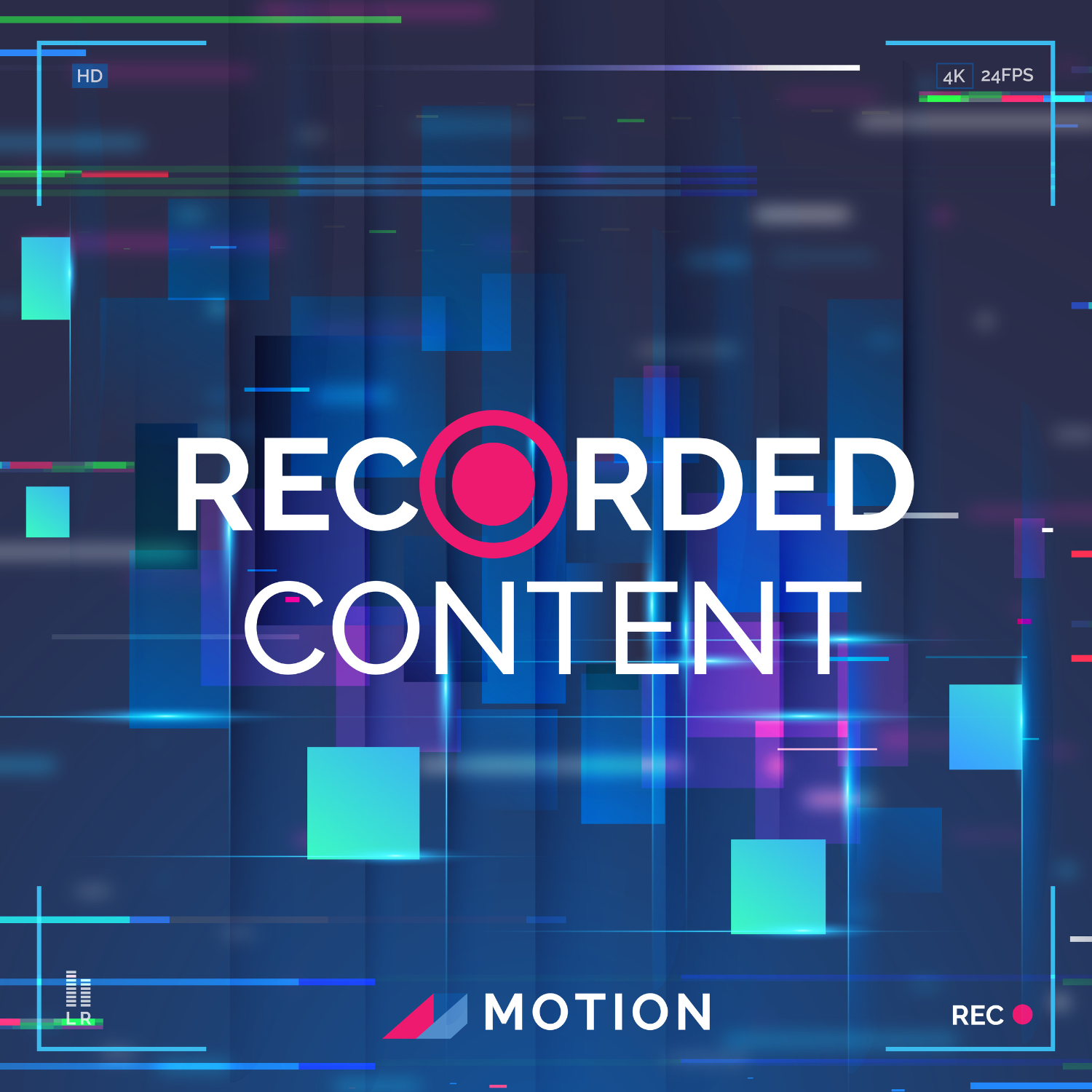A podcast allows you to use genuine conversations to create content for your company. Interviews help capture the expertise of industry leaders and these conversations can even power your company’s entire content marketing flywheel.
But sometimes it’s hard to share your company’s point of view if your show mostly relies only on an interview podcast format.
A solo podcast episode format breaks away from one of the common types of podcasts (interview-based approach) and gives the microphone to one person. By communicating directly with your audience, you have complete control. As the solo host, you have the ability to pick your podcast topics, weave in your own thoughts, and provide a unique perspective on your industry.
In this post, we’ll provide guidelines to help you craft a solo podcast episode. We’ll cover:
- Identifying what’s involved with a solo podcast
- How to know whether a solo podcast is the right format for you
- The top 5 advantages of using a solo podcast format
- 8 concrete examples of solo podcast episodes to use for inspiration

“A solo podcast episode gives me the chance to share my own stories. It’s also great for practicing our company’s messaging.”
Tristan Pelligrino
Co-Founder
Motion
What is a solo podcast?
A solo podcast is exactly what the name suggests. It’s a format that focuses entirely on the host and the stories they have to tell. It’s a chance to switch up the podcast and give your listeners a new experience that helps to increase the connection between the listener and host.
This format requires your host to do more preparation than they normally would since they are solely responsible for carrying the entire episode for the audience.
When producing a solo episode, there are three important pieces that will help you stand out.
- Be specific – When you take the mic yourself, don’t waste the opportunity. Create a detailed podcast episode that goes a level deeper for your audience. Develop a clear title for the episode and deliver the goods.
- Have a point of view – When you create a solo episode, you have the chance to clearly outline your point of view. In this case, don’t just state your opinion. Back up your perspective with personal stories and past experiences.
- Know your “why” – The best solo episodes are driven by passion. When the host is passionate about a subject, it comes through in their voice and overall presentation. So before you take the mic, make sure you’re passionate about what you want to share & why it’s important to your audience.
How do you know if a solo podcast format is right for you?
Creating a solo podcast episode can be intimidating. You need to be sure that your host can take on the challenge of keeping the podcast flowing throughout the entire episode.
A good host will share information. But a great host will have a personality and will have the passion come through during the delivery.
But how do you know if you have what it takes?
You have to try it.
Your first episode won’t be perfect. Your delivery will be flat. You’ll forget something. You’ll regret how you phrased something.
But the more you work with this popular podcast format, the better you’ll get. And once you get more comfortable, you’ll have the unique opportunity to grab the mic whenever you want and share your point of view with your company’s audience.
The top 5 advantages of using a solo podcast format
We’ve already skimmed a few benefits that a solo podcast format can bring, so let’s dive straight in.
1. Allows the host to communicate directly with the audience
Your listeners spend a long time listening to and getting to know your host. Aside from elements such as format or structure, the host is the key constant for any podcast. Ultimately, the host is what keeps listeners coming back time and time again.
Solo episodes give your listeners a chance to connect with the host on a deeper level. They can put forward their point of view without worrying about giving a guest enough airtime or having a conversation go off on a tangent.
2. Gives you creative control over the message (you’re not relying upon the guest)
The core motivation for podcasting is to share the message you believe in. For a business looking to use podcasting as part of their marketing mix, that message could be a reflection of your latest product, or it could simply be a way to help your audience.
No matter what the message is, the podcast should act as a vessel for that message. When you involve a guest as part of your show, the conversation is usually weighted heavily towards the guest.
Solo podcasts help to shift the focus back onto your company. The host has complete creative freedom with the content & how it’s delivered to the audience.
3. Provides a platform to share your own unique stories that are hard to fit into an interview-based approach
The interview format is fantastic for uncovering valuable insights and stories from your guests. When you involve guests as part of your company’s podcast strategy, it helps provide a well-rounded story for your audience.
But when you interview guests, the episodes typically focus on the guest’s experiences. You don’t have as much opportunity to weave in stories from the host.
Solo episodes provide a platform for your company to highlight stories from internal experts or hosts. By featuring stories from those within your company, you humanize your brand.
You go from B2B to 1:1 with each member of your audience.
4. Helps get you to practice with verbalizing your company’s message
An interview-based podcast format is a great way to build a foundation. You get to work on the structure of your podcast and build relationships with others in your industry at the same time.
But when you turn to solo podcast episodes, you have the benefit of working with your own company’s message.
What’s your tone of voice? How are you articulating certain benefits? How are you describing the pain points of your customers? And if you’re doing video podcasts, do you look confident when you share key messages?
By taking the mic yourself, you get the chance to work on your company’s messaging. You actually practice saying different messages. You get more comfortable sharing the benefits of your product.
Ultimately, it’s a continuous process. But you definitely get better at communicating with your best customers.
5. Encourages you to synthesize your ideas from different sources
The solo podcast format opens the door for a question and answer segment, or even a full Q&A episode. Allowing your audience to submit questions that could be answered on air is a great way of building a connection between your listeners, your host, and your company.
Listeners will always have burning questions they would love to be answered, be it personal questions about the host, services your company offers, or challenges they face.
While you may be hesitant to open the floodgates, taking questions from customers is a fantastic opportunity to understand their world. And you get the chance to identify resources and present them to your audience.
8 solo podcast episodes to give you inspiration
It’s hard to take the mic by yourself and hit record.
So a little inspiration may come in handy when you decide a solo podcast episode is right for your company’s show.
With that in mind, here’s a list of 8 solo podcast episodes covering a range of topics that’ll help you develop your very own approach.

Modern Startup Marketing – Episode 18: How To Simply Your Content Strategy And Measure Impact with Anna Furmanov
This episode focuses on improving your content to maximize value to your listeners and speaks to what we mentioned previously about CCP.
For a detailed breakdown of Anna’s approach, check out Sharing your point of view in solo podcast episodes with Anna Furmanov.
Everyone Hates Marketers (By Louis Grenier) – How to Break Through The Noise in a Cluttered Market by Doing LESS
This episode looks at how companies can learn a lesson from Broadway on how doing less really is more in marketing.


One Percent Better Podcast – Episode 187: Damn Good Listener Questions
This is a fantastic example of the Q&A session we mentioned earlier! Joe Ferraro was also featured on our very own Recorded Content podcast.
SaaS Marketing Bites from Powered By Search – The Anatomy of the Ideal SaaS Website: Best practices from Our Authority Architecture Framework
In this episode, we look at how to apply a systematic approach to SaaS website architecture and why it works.
Marc provided a detailed look into how he produces each episode on Recorded Content.


Humans of SaaS – Episode 46: NPS I Loved You With Ben Winn
This episode gives a valuable insight into how Ben Winn created and manages his podcast.
Ben was also a recent guest on Recorded Content where he talked about the evolution of his show & why it was rebranded.
Between Two Mics: The Remote Recording Podcast: Podcasts We’re Listening to Lately
This is a great example of a co-host format. While it technically isn’t a solo podcast, it shares a lot of characteristics and techniques.
The Co-Founder of SquadCast, Zach Moreno, was one of the very first guests on Recorded Content.


Design Matters with Debbie Millman – Best of 2020
This episode is a great example of the retrospective solo format.
Startups For The Rest of Us – Episode 572: Fault vs. Responsibility & Games vs. Practice
SFTRoU is not normally a solo podcast. However, from time to time, they like to give a host the chance to shine on their own. This is a great example of how different from the usual format can spark new life into your podcast.

In closing
Conversations can fuel your entire content marketing strategy. And using a natural conversation within your podcast episodes gets you going in the right direction.
But sometimes you have to step away from the standard interview and give the mic to your host.
The solo podcast episode format allows your company to humanize its brand and create a 1:1 intimate connection with your very best customers. So step out of your comfort zone and grab the mic.
Want to see how other B2B marketers use their podcasts on YouTube?
Recorded Content is a show for small, scrappy marketing teams who are looking to launch & grow a successful B2B podcast. In each episode, we provide stories on how to overcome the challenges of launching, running and growing a show. We tackle issues with technology, content marketing, distribution and more. We help you become a B2B podcasting hero with an amazing show.

Written by Tristan Pelligrino
Tristan Pelligrino is the Co-Founder of Motion. He’s a serial entrepreneur who started his career as a consultant with large IT companies such as PwC, IBM and Oracle. After getting his MBA, he started and grew one of the fastest video production companies in the country – which was listed on the Inc. 5000. Tristan now enjoys leading the content marketing strategies of some of the most innovative B2B technology companies in the country. You can find him on LinkedIn and Facebook.
